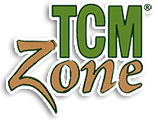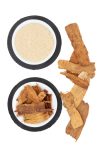Chief, Deputy, Assistant, and Envoy Herbs: Advanced Strategies in TCM Formulation

By Xiyuan “Alex” Qiu, L.Ac.
In the intricate practice of traditional Chinese medicine (TCM), herbal formulations play a pivotal role in addressing complex health conditions. Advanced acupuncturists and herbalists understand that the effectiveness of TCM formulas often hinges on the selection and synergy of herbs within the prescription. Central to this approach are the concepts of chief, deputy, assistant, and envoy herbs, which guide practitioners in creating dynamic formulations tailored to each patient’s unique constitution and pattern of disharmony. In this blog, we delve into the principles and applications of chief, deputy, assistant, and envoy herbs, exploring advanced strategies for optimizing TCM formulations.
Understanding the Role of Chief, Deputy, Assistant, and Envoy Herbs
- Chief Herbs: The chief herbs in a TCM formulation target the primary pattern of disharmony or the root cause of the patient’s condition. These herbs exert the most significant therapeutic effect and set the direction for the overall treatment strategy. Chief herbs are often chosen based on their ability to tonify deficiencies, dispel excesses, or resolve the underlying pathology.
- Deputy Herbs: Deputy herbs support and reinforce the actions of the chief herbs, addressing secondary symptoms or patterns of disharmony. These herbs play a complementary role in the formulation, amplifying the therapeutic effects of the chief herbs and ensuring a balanced approach to treatment. Deputy herbs may possess similar properties to the chief herbs or offer additional therapeutic actions to enhance treatment outcomes.
- Assistant Herbs: Assistant herbs harmonize and regulate the formula, moderating the effects of the chief and deputy herbs to ensure compatibility and balance. These herbs may have a more neutral or moderating nature, helping to smooth out any potential side effects or excesses caused by the other herbs in the formulation. Assistant herbs often support the function of the spleen and stomach, promoting digestion, absorption, and distribution of the herbal ingredients.
- Envoy Herbs: Envoy herbs guide the actions of the formula to specific areas of the body or channel systems, directing the therapeutic effects to the desired target. These herbs act as messengers or facilitators, ensuring that the herbal ingredients reach their intended destination and exert their effects effectively. Envoy herbs may possess unique properties or functions that enhance the overall efficacy of the formula and promote targeted healing.
Advanced Applications of Chief, Deputy, Assistant, and Envoy Herbs
Case Study: Chronic Fatigue Syndrome (CFS)
In the treatment of CFS, an advanced practitioner may design a custom herbal formulation to address the underlying patterns of spleen qi deficiency, liver stagnation, and kidney essence depletion. The formulation may include:
- Chief Herb: Huang Qi (Astragalus Root) – Tonifies spleen qi, boosts immune function, and enhances vitality.
- Deputy Herb: Chai Hu (Bupleurum Root) – Resolves liver stagnation, regulates qi flow, and alleviates fatigue.
- Assistant Herb: Dang Gui (Chinese Angelica Root) – Nourishes blood, harmonizes the formula, and supports overall energy production.
- Envoy Herb: Shan Yao (Chinese Yam) – Tonifies kidney essence, strengthens the spleen, and facilitates the actions of the formula.
Case Study: Insomnia and Anxiety
For patients experiencing insomnia and anxiety, an advanced practitioner may formulate a custom herbal prescription targeting heart blood deficiency, liver qi stagnation, and spleen qi deficiency. The formulation may include:
- Chief Herb: Suan Zao Ren (Sour Jujube Seed) – Nourishes heart blood, calms the mind, and promotes restful sleep.
- Deputy Herb: Bai Zi Ren (Biota Seed) – Quiets the spirit, settles the mind, and enhances sleep quality.
- Assistant Herb: Long Gu (Fossilized Bone) and Mu Li (Oyster Shell) – Calm the shen, anchor the spirit, and stabilize the emotions.
- Envoy Herb: Yuan Zhi (Polygala Root) – Resolves phlegm, opens the orifices, and guides the actions of the formula to the heart and liver channels.
Conclusion: Mastering the Art of Herbal Formulation in TCM
As advanced acupuncturists and herbalists, we recognize the profound significance of chief, deputy, assistant, and envoy herbs in TCM formulation. By understanding the unique properties and functions of each category of herbs, we create dynamic and effective herbal prescriptions that address the root causes of our patients’ conditions while promoting overall health and well-being. Through the artful synergy of herbal medicine, acupuncture, dietary therapy, and lifestyle recommendations, we empower our patients to achieve optimal health and vitality on their journey towards wellness.
References:
- Bensky, D., & Barolet, R. (1990). Chinese Herbal Medicine: Formulas & Strategies. Eastland Press.
- Chen, J. K., & Chen, T. T. (2004). Chinese Medical Herbology and Pharmacology. Art of Medicine Press.
- Maciocia, G. (2005). The Practice of Chinese Medicine: The Treatment of Diseases with Acupuncture and Chinese Herbs. Churchill Livingstone.
- Ross, J., & Wilson, D. (2007). Chinese Medicine in Cancer Care: Herbs, Acupuncture, and Traditional Chinese Medicine in Cancer Care. Thieme.


